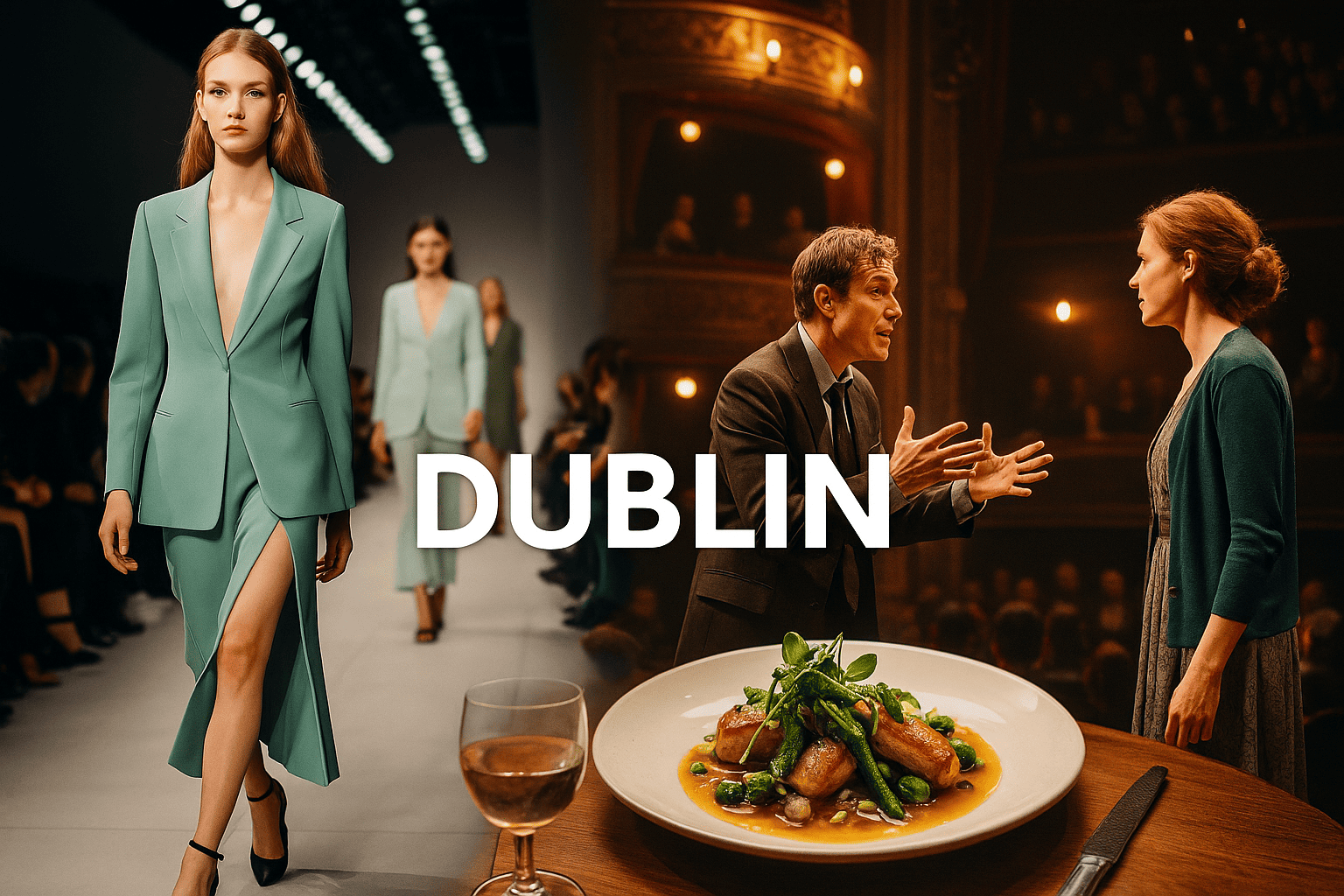
At the recent Dublin Fashion Week, the spotlight turned away from glossy luxury and toward sustainability. Designers highlighted the “second life” of style: collections built from recycled fabrics, remixed vintage pieces, and ideas of slow fashion. The young label Éire Reborn set the tone by using repurposed denim and locally grown linen. Their blend of 1990s and Y2K aesthetics with stripped-back minimalism struck a chord with Generation Z, a cohort as interested in responsibility as in looks.
While the catwalk spoke through textiles, the stage at Abbey Theatre explored how clothing connects to identity. The production Threads of Belonging reflected on generational differences between Irish people and immigrants, showing how garments can become declarations of belonging. Fringe venues across the city pushed experimentation further still: dance, poetry, and visual projections fused into hybrid performances, turning theatre into a laboratory for social questions rather than just entertainment.
The evenings, however, are not only for theatre seats. Dublin’s culinary scene increasingly transforms dining into cultural expression. Pop-up dinners now function as art projects, where chefs collaborate with visual artists and designers. One of the most striking examples, Edible Canvas, presented dishes on handcrafted ceramics, making the act of eating itself a kind of performance. At the Taste of Dublin festival, the focus turned to the local: Atlantic sea salt, artisan cheeses from Cork, and seasonal vegetables became central to a narrative where food was more than flavour — it was a story told in images, textures, and emotions.
What links these worlds together is a renewed sense of identity. Irish culture increasingly values the “made here” — whether fabrics, foods, or stories. Experience outweighs possession: buying a dress, attending a play, or joining a dinner is no longer just a purchase but part of a broader cultural journey. And social media amplifies this shift, turning a photograph of a show or a plate into a small media event.
In this convergence, Dublin offers a glimpse of a society negotiating between tradition and modernity, local roots and global conversations. Fashion, theatre, and food no longer run on parallel tracks; they intersect, shaping a cultural scene where everyday life and artistic practice feed directly into one another.
